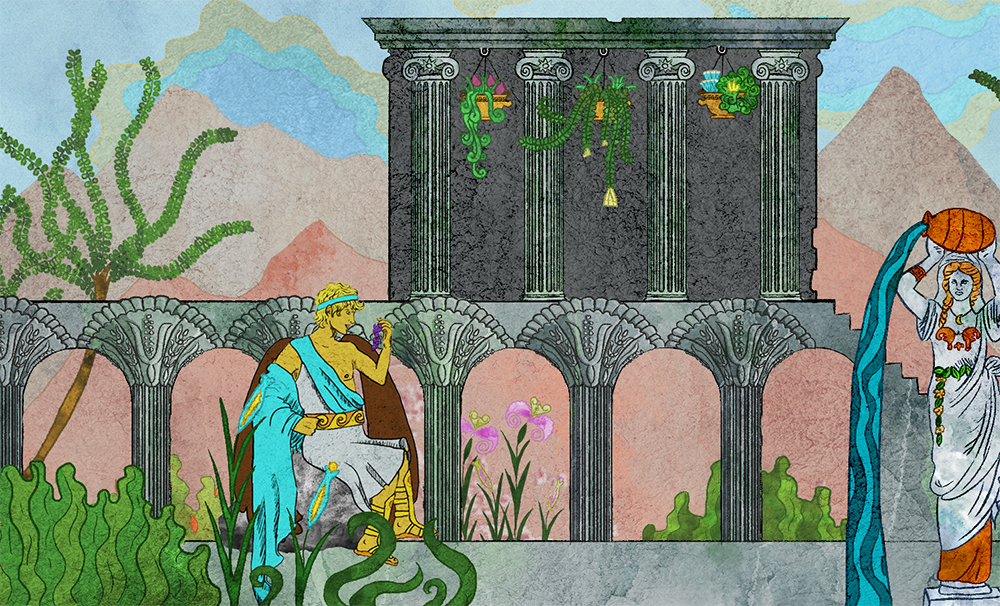Icarus by Jordan Sterling Pike is a project seeking to immerse the participants in an alternate reality version of Crete, Greece, within a science fiction dystopia where VR headsets are more common than houseplants, gods walk amongst the mortals, and everyone is very, very queer. This interactive art piece is in opposition to the idea that video games can’t be art, posited by famous critic Roger Ebert, and reinforced by AAA game companies cranking out heartless, addictive games solely for profit. Any medium for the expression of ideas is an artform, and video games can merge together many artforms in an attempt to sculpt an interactive experience.
Mythology and folk tales are not concrete things with a single source to point back to. Really they’re winding paths through history where the stories change shape and function over time. Some of the characters, like the titular Icarus, are reimagined as queer in this tale, while the rest of the characters represent the queerness that was already attributed to them in many ancient texts, only to later be modified under a monotheistic lense. You could call this “straight washing”.
“My desire in this project was to bring queer characters from ancient Grecian mythology to the forefront, reminding participants that queerness is not, in fact, a new concept of the modern age, but instead an always-existing group that history has just attempted to blot out. I invite the player to follow along with the interactive, non-linear storyline of Icarus to get to the bottom of the mysteries of the Island of Crete, where they will discover a colourful cast of queer characters that are stuck in a world devoid of the nature that unconsciously sustains us all.” Jordan Pike.






Comments by soddleif